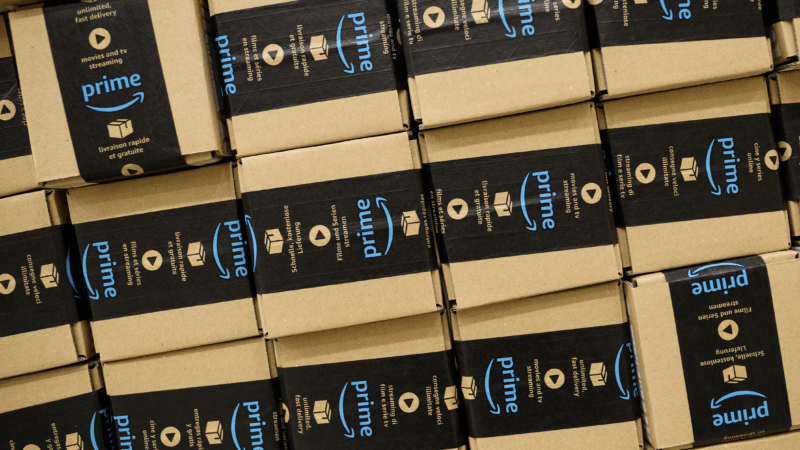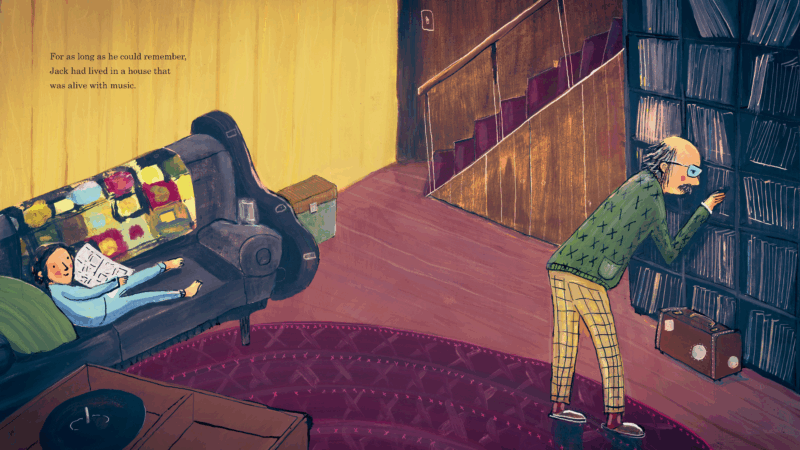Did Amazon trick people into paying for Prime? Federal case goes to trial
Amazon and the U.S. government are facing off in a Seattle courtroom over Prime, the company’s lucrative subscription service. The government alleges that the company “tricked” people into paying for Prime memberships that were purposefully hard to cancel.
The lawsuit marks one of the biggest federal cases pursuing one of the world’s largest companies. Somewhat unusually for a dense antitrust case, a jury will determine whether Amazon broke the law. Oral arguments are expected to begin on Tuesday in the trial that’s slated to last for nearly a month.
The Federal Trade Commission has accused Amazon of violating consumer-protection and competition laws in how it got people to sign up for Prime, the subscription service that costs $139 a year or $14.99 a month. Amazon denies any wrongdoing.
In 2021, the company said more than 200 million people worldwide subscribed to Prime. That was the last time it publicly disclosed membership figures.
This Prime case is a prelude to the FTC’s second and sweeping lawsuit that has accused Amazon of functioning as a monopoly. Amazon has said that suit is “wrong on the facts and on the law.” That trial is slated for early 2027, in front of the same judge, John Chun of the U.S. District Court for the Western District of Washington.
Government says Amazon knew it trapped people
The FTC alleges that millions of people signed up for Prime unintentionally thanks to Amazon’s use of what’s known as dark patterns, which the lawsuit describes as “manipulative design elements that trick users into making decisions they would not otherwise have made.”
One example regulators offered showed a large yellow button “Get FREE Two-Day Shipping” as a swift way to sign up without much detail about recurring membership costs, while a small blue hyperlink “No thanks, I do not want fast, free shipping” would avoid signing up for Prime.

And on the other end, the FTC describes a “four-page, six-click, fifteen-option” journey to cancel a Prime membership, which it alleges Amazon employees internally called the “Iliad Flow,” referring to the epic ancient Greek poem about the long and arduous Trojan war.
“Millions of consumers accidentally enrolled in Prime without knowledge or consent,” the FTC says in its trial brief, “but Amazon refused to fix this known problem, described internally by employees as an ‘unspoken cancer’ because clarity adjustments would lead to a drop in subscribers.”
Amazon says it acts like other subscription services
Amazon argues its Prime members are drawn by the program’s benefits, not design tricks. It says its designs and disclosures are in line with — or even clearer than — the rest of the subscription industry.
“Occasional customer frustrations and mistakes are inevitable — especially for a program as popular as Amazon Prime,” the company’s trial brief says. “Evidence that a small percentage of customers misunderstood Prime enrollment or cancellation does not prove that Amazon violated the law.”
Amazon says the law does not define the term “dark patterns,” and the FTC is attempting to apply a broad law against fraud through interpretation. Andrea Matwyshyn, Pennsylvania State University law professor who’s advised the FTC in the past, says the law is intentionally broad to give regulators leeway for the latest technology or business practices.
“The question is when design crosses the line into a situation where a reasonable consumer does not have a fair shot of understanding what’s going on,” Matwyshyn says.
Amazon is also defending three of its executives who were personally named in the FTC’s lawsuit as individuals alongside the company as a whole.
Judge questions Amazon’s legal tactics
In July, Judge Chun formally admonished Amazon lawyers for some of their legal tactics in the lawsuit.
The FTC accused Amazon of hiding incriminating evidence by gratuitously marking filings as privileged. After Amazon re-reviewed its privilege logs, the company withdrew almost all of its privilege claims and produced nearly 70,000 documents to the FTC on the eve of the cutoff date for discovery.
The judge wrote that this conduct was “tantamount to bad faith” and appeared motivated by “the
desire to gain a tactical advantage.”
Judge Chun has sided with the FTC in several other procedural rulings; he has also denied Amazon’s motion to dismiss the lawsuit. The FTC’s investigation of Amazon began during the first Trump administration. The agency did not file its lawsuit until 2023, however, when it was under the leadership of Lina Khan, the firebrand Biden appointee.
Amazon is an NPR financial supporter and pays to distribute some of our content.
Transcript:
LEILA FADEL, HOST:
One of the biggest U.S. lawsuits against Amazon is going to trial today. The federal government accuses the tech giant of tricking people into paying for prime memberships that were purposefully hard to cancel. Amazon is fighting these allegations in a courtroom in its hometown of Seattle. And we should note that Amazon is among NPR’s financial supporters, but we cover it like any other company. NPR’s Alina Selyukh has followed this case, and she joins us now. Good morning, Alina.
ALINA SELYUKH, BYLINE: Hello, hello.
FADEL: All right, so set the stakes for us. What’s happening?
SELYUKH: Yeah. So this is one of the two major federal lawsuits brought against Amazon in recent years by the Federal Trade Commission, which regulates competition. One lawsuit made this massive accusation that Amazon basically functions as a monopoly. That case is not what we’re talking about. That trial is not until 2027.
FADEL: OK.
SELYUKH: This case is kind of like the appetizer course before the main entree. It’s a case focused on Prime.
FADEL: Which is Amazon’s membership program.
SELYUKH: Yes. And the case goes back almost a decade. But right now, Prime costs $139 a year or $15 a month. So it’s very lucrative. It’s earning Amazon tens of billions of dollars.
FADEL: So what are the allegations in this case?
SELYUKH: The FTC says Amazon broke competition and consumer protection laws by how it got people to pay for Prime subscriptions. There are some juicy terms involved. The FTC says Amazon used dark patterns, which means manipulative web designs to get people enrolled into Prime. Think like a huge yellow button that says, get free same-day delivery, and boom, you’re signed up for Prime versus a smaller, just, like, hyperlink in blue that says, no thanks, I don’t want free delivery, and that avoids signing up for Prime.
FADEL: OK.
SELYUKH: And then on the other end, the multistep process to cancel a Prime membership. Internally, Amazon employees had a code name for it, calling it the Iliad flow.
FADEL: Iliad, like the epic ancient Greek poem by Homer?
SELYUKH: The long and arduous poem about the long and arduous Trojan War. So essentially, the FTC says Amazon, quote, “tricked” tens of millions of people into the recurring Prime membership and then made people jump through too many hoops to cancel subscriptions.
FADEL: OK, so what is Amazon saying to this accusation that they’re basically illegally tricking millions of people into signing up?
SELYUKH: Amazon lawyers argue the company has done nothing illegal. They say Prime designs and disclosures follow widely accepted industry standards and, in fact, clearer than other companies. In its trial brief, the company says that, quote, “occasional customer frustrations and mistakes are inevitable,” especially for a program as popular as Amazon Prime, and “evidence that a small percentage of customers misunderstood Prime enrollment or cancellation does not prove that Amazon violated the law.”
FADEL: Do you have any sense of how this case will go?
SELYUKH: You know, there’s a wild card factor, which is that much of the case is actually going in front of a jury. That’s somewhat rare for a dense antitrust lawsuit, and I’m not sure if having a local jury in Seattle will give Amazon a hometown advantage or the opposite. And as far as the judge on the case, so far, he has made several procedural rulings in the FTC’s favor. He’s also formally admonished Amazon lawyers for some of their legal tactics, all of which to say this trial could have some drama in store, and it’s expected to go on until at least late October.
FADEL: NPR’s Alina Selyukh. Thank you for your reporting.
SELYUKH: Thank you.
Swiss Alpine bar fire claims 41st victim, an 18-year-old Swiss national
Swiss prosecutors have opened a criminal investigation into the owners of Le Constellation bar in the ski resort of Crans-Montana, where a fire in the early hours of Jan. 1 killed dozens.
Sunday Puzzle: Rhyme Time
NPR's Ayesha Rascoe plays the puzzle with WBUR listener Laurie Rose and Weekend Edition Puzzlemaster Will Shortz.
Alcaraz beats Djokovic to become the youngest man to complete a career Grand Slam
The 22-year-old Spaniard's win against 38-year-old rival Novak Djokovic at Sunday's Australian Open makes him the youngest male player to win all four major tournaments.
You already know the song — now, ‘The One About the Blackbird’ is also a picture book
In The One About the Blackbird, a young boy learns to play guitar from his grandfather. And there's one song in particular that they love…
At a clown school near Paris, failure is the lesson
For decades, students at the Ecole Philippe Gaulier have been paying to bomb onstage. The goal isn't laughs — it's learning how to take the humiliation and keep going.
In the world’s driest desert, Chile freezes its future to protect plants
Tucked away in a remote desert town, a hidden vault safeguards Chile's most precious natural treasures. From long-forgotten flowers to endangered crops.







